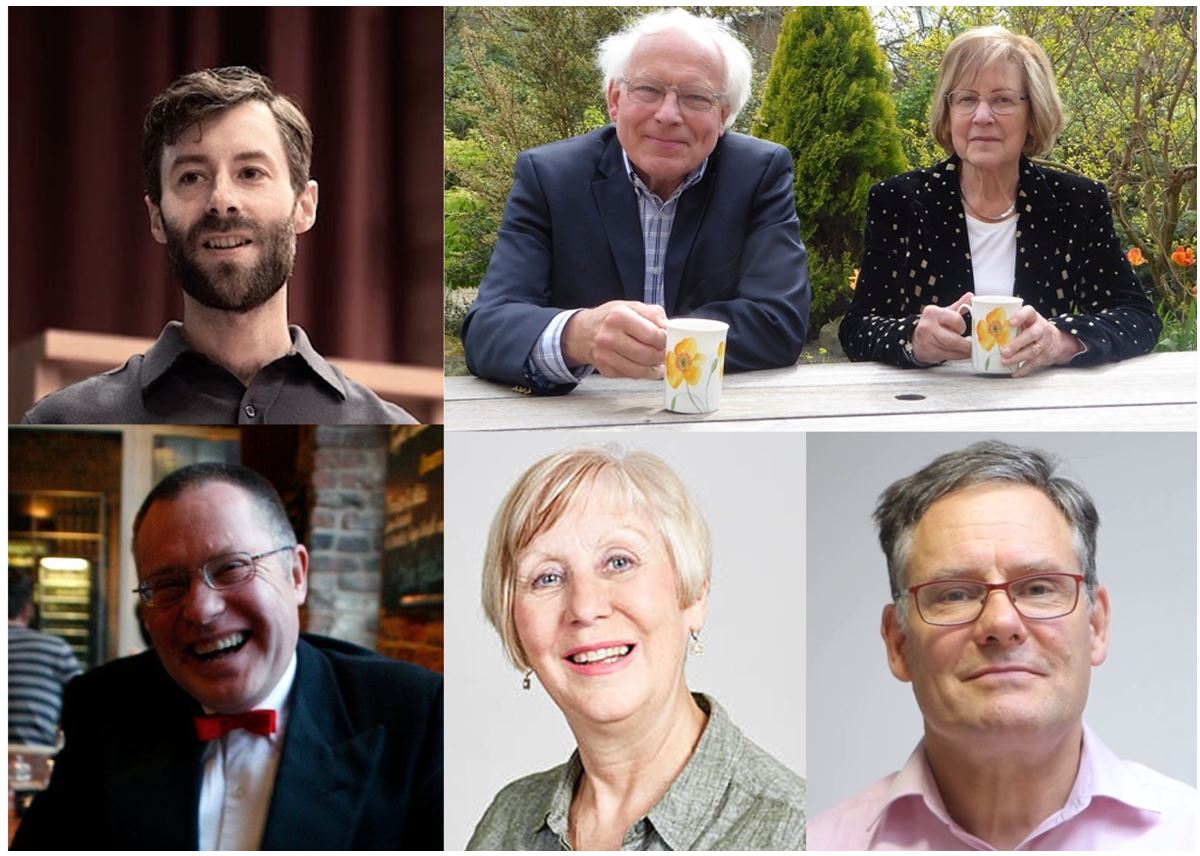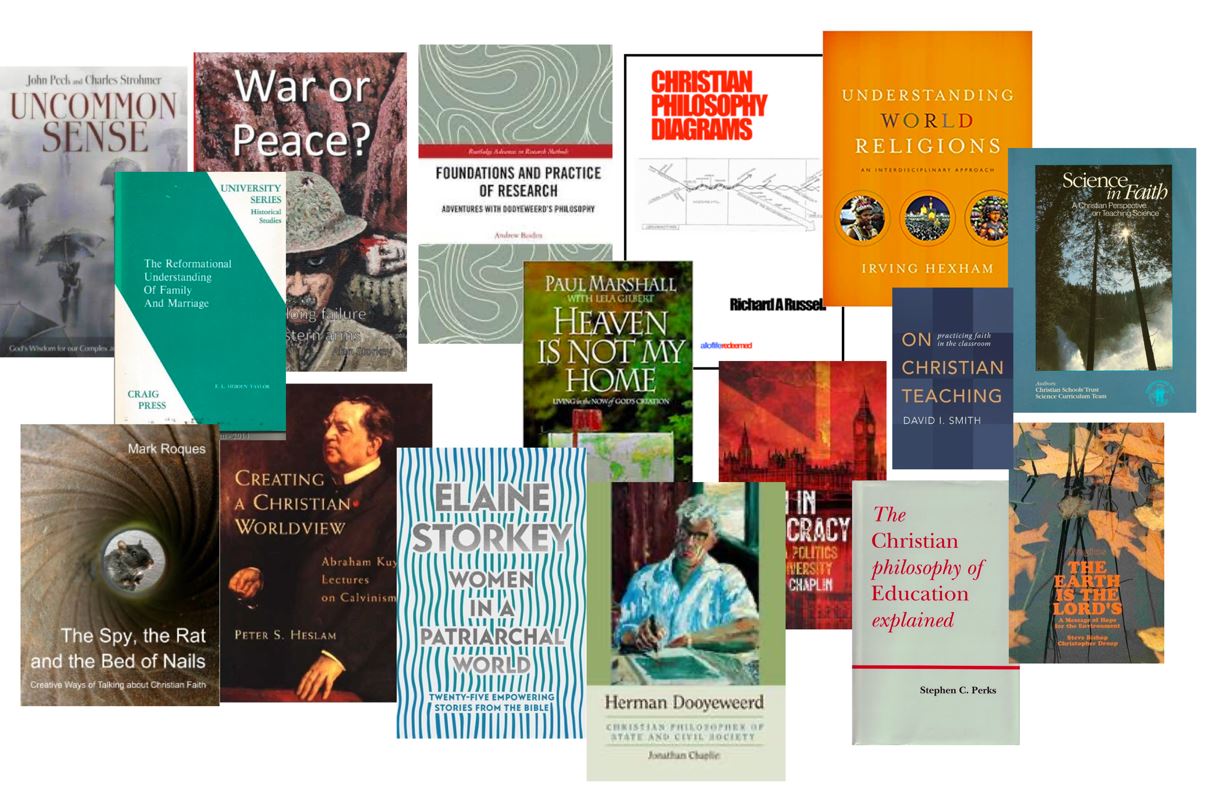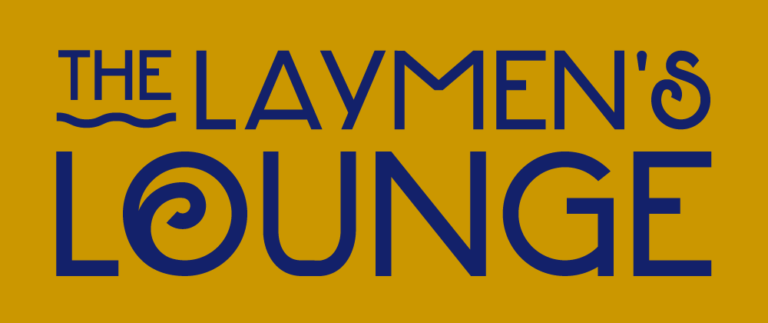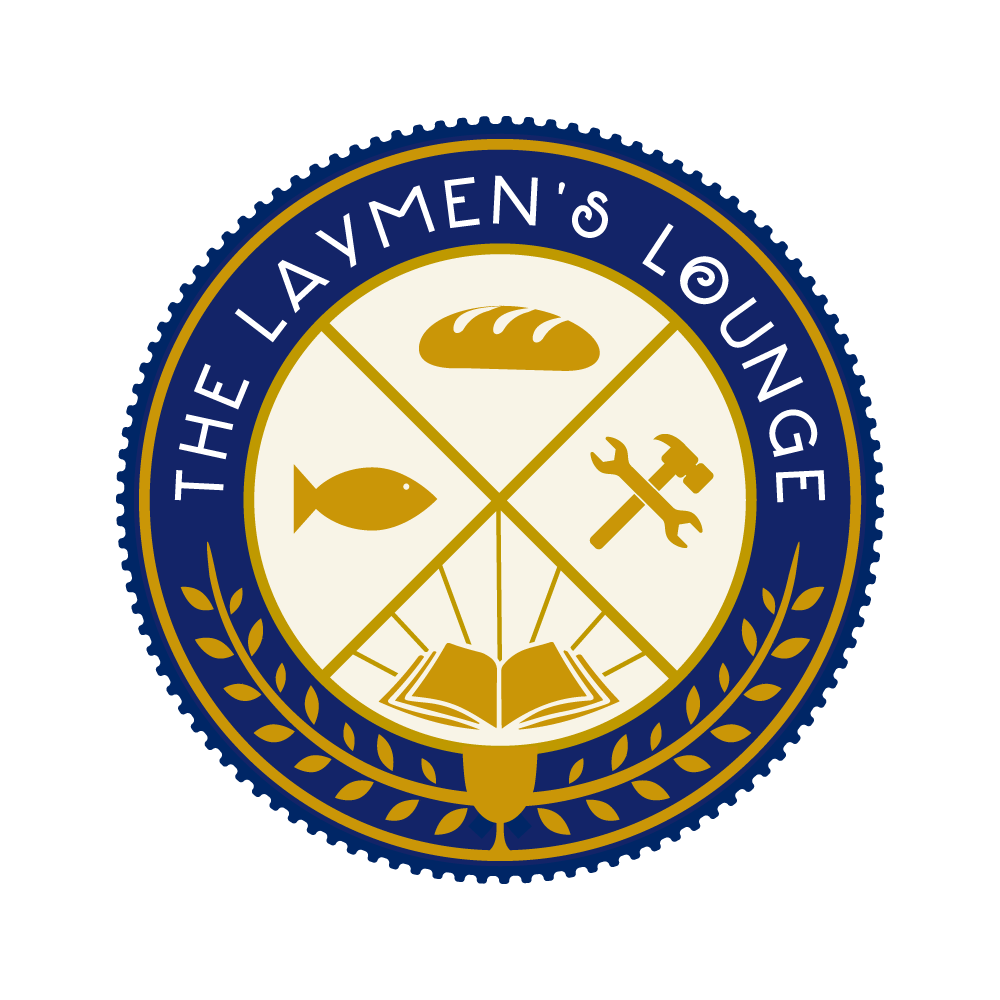NOTE FROM THE EDITOR: This is the third article in a series that will run the next few months called “The State of Neo-Calvinism.” Come back each week to read about the state and influence of Neo-Calvinisim in nations all over the globe. To listen to the kick-off podcast interview with George Harinck click here. For Jordan Ballor on the USA click here, Thiago Machado Silva on Brazil click here, and for Surya Harefa on Japan click here.
by Steve Bishop
England has a population of 56 million and yet there are only a small number of Calvinists and an even smaller number of neo-Calvinists. However, their influence has been greater than their numbers.

For many years in the twentieth century, there were three main hubs of neo-Calvinism in England: Cambridge, Bath, and Leeds. These were home to three neo-Calvinist institutions: College House, Christian Studies Unit and ThinkingFaith Network (formerly WYSOCS).

Clockwise, from top right: Jeremy Ive, Steve Shaw, John Peck, and Jonathan Chaplin
Each of these provided the hubs through which scattered neo-Calvinists could meet and network.
Cambridge
College House was a L’Abri-like project based in Cambridge and was aimed at developing a Christian approach to everything. Those involved with it were also involved with the early days of the Greenbelt Christian Arts Festival. The main driving force was John Peck (1924-2016), a pastor of a Baptist church in Earl Soham, Woodbridge, Suffolk. Before that he had been a lecturer at the Bible Training Institute in Glasgow where through reading E.L. (Stacy) Hebden’s[1] book The Christian Philosophy of Law, Politics, and the State he came to a neo-Calvinist/ Reformational perspective. Others involved in College House were Jeremy Ive, Jonathan Chaplin, and Steve Shaw. Revd Jeremy Ive later went on to complete a (second) PhD at Kings’ College on Dooyeweerd and Vollenhoven in 2012.

Alan and Elaine Storkey
In 1986 The Open Christian College (OCC) began by Alan and Elaine Storkey and a correspondence course An Introduction to a Christian Worldview was published. Sadly, the lack of take-up for the course meant it was no longer viable.

Cambridge is now home to Kirby Laing Centre for Public Theology run by Craig Bartholomew. It was previously known as the Kirby Laing Institute for Christian Ethics. Its first director was Jonathan Chaplin. Chaplin returned to the UK from the ICS to take up the post. Chaplin was the author of Herman Dooyeweerd. The KLICE became KLC under the new directorship of Bartholomew.

Also based in Cambridge is Faith in Business, the director Peter Heslam, completed his PhD on Kuyper’s Stone Lectures, published as Creating a Christian Worldview (1998).
Bath
Bath was for many years the base for the Christian Studies unit ran by Revd Richard Russell. For many years the Christian Studies unit organised conferences and events.

Richard was responsible for a whole raft of Christians becoming acquainted with Herman Dooyeweerd and D.H.Th. Vollenhoven’s works through his tireless bookselling, mentoring and networking. These include Jonathan Chaplin, Nik Ansell (ICS, Toronto), Andrew Basden (Salford University and maintainer of the Dooyeweerd pages – see below), Arthur Jones, Tony Garood, Mark Roques (Reality Bites, ThinkingFaith Network – see below), Steve Bishop, Andrew Fellowes, Rudi Hayward … .
Richard is the author of Christian Philosophy Through Diagrams. He and his wife Janice are both Associate Fellows of the Kirby Laing Centre.
Leeds
Mark Roques moved from Bath to Leeds to work with WYSOCS. WYSOCS (the West Yorkshire School of Christian Studies) was formed by David Lyon and Ruth Hanson at the suggestion of John Stott and based on the model of Stott’s London Institute for Contemporary Christianity (LICC) in 1986.

WYSOCS became ThinkingFaith Network in 2016. It has three main strands: Reality Bites, Life Matters and Faith in Scholarship (FiSCH).
Mark Roques is the director of Reality Bites and he has a vision to communicate using unusual, imagination-gripping stories. To this end, he has worked on a new course with Patricia Gray designed to help Christians communicate the gospel in a non-cheesy way.

Mark has also been involved in Iron Sharpens Iron (ISI) – part of the Life Matters branch – this is a zoom meet where eminent Christians discuss and are questioned about contemporary issues.

As part of the Life Matters branch, there is an annual conference on business and the kingdom organised by Cal Bailey.
Faith in Scholarship (FiSCH) is organised by Richard Gunton – it is “a network of fellowship and support for Christian thinkers both in and out of the university.” Richard and several others have collaborated on a paper developing an ecosystem valuing framework utilising Dooyeweerd’s modal aspects.[2] He has also produced a two-part YouTube video examining Dooyeweerd’s Secularisation of Science under the auspices of the All of Life Redeemed International Seminars Project and has collaborated with Michael Reiss and Dick Stafleu on a paper on scientific objectivity.[3]

The Kuyper Foundation

The Kuyper Foundation was founded in 1987 by Stephen Perks. It was originally called the Foundation for Christian Reconstruction. Perks was originally from West Yorkshire but now lives in Somerset. The Kuyper Foundation seeks to promote “the renaissance of Christian culture in society by furthering awareness of the implications of the Christian faith for every sphere of life.
For several years (1991-2004) it produced the magazine Christianity and Society. As well as the kuyperian influence the Kuyper Foundation is sympathetic to R.J. Rushdoony’s Christian Reconstructionism. Stephen Perks is the author of several books which can be seen here.
Web-based initiatives
Dooyeweerd pages

Andrew Basden[4] has been the source and originator of the Dooyeweerd Pages. These began in 1997. After being introduced to Dooyeweerd by Richard Russell in the early 1990s, Andrew realised the need to make these insights more accessible and to clear up any misunderstanding of them. The aim of the Dooyeweerd Pages is to help others find out about Dooyeweerd’s philosophy (especially his aspects); to explore, discuss, critique Dooyeweerd; to compare his ideas with others; and to use Dooyeweerd’s ideas in practice. For many, these pages have provided the first port of call for understanding Dooyeweerd.
Andrew is also the author of two major books utilising Dooyeweerd’s philosophy: Foundations and Practice of Research: Adventures with Dooyeweerd’s Philosophy and Foundations of Information Systems: Research and Practice, both published by Routledge.
All of Life Redeemed

The website http://www.allofliferedeemed.co.uk/ began in February 2005 as a series of freewebs pages linked together – the free version only allowed three pages. There was little Reformational philosophy online at the time. The only exception was Andrew Basden’s brilliant Dooyeweerd pages.
Roy Clouser commented in passing on thinknet, a Reformational mailing list, that he would be happy for his articles to go online. The result was that Roy’s papers and articles formed the first few pages and www.allofliferedeemed.co.uk was born. At present, it contains the writings and links for over 80 reformational scholars.
Roots of Western Culture
Rudi Hayward has produced an excellent set of YouTube videos going through Herman Dooyeweerd’s Roots of Western Culture. Rudi is also working on an introduction to Christian philosophy called Tasks and Cosmos.

Other institutions

There are other individuals and institutions that while influenced by neo-Calvinism have not fully embraced neo-Calvinism and are more broadly evangelical in approach. These include L’Abri, the London Institute of Contemporary Christianity and the Oxford Centre for Mission Studies.
English L’Abriis based in Greatham, Hampshire. Its main concern is cultural apologetics. A former staff worker at L’Abri, Andrew Fellowes (now of Christian Heritage, based at the Round Church in Cambridge), has been influenced by Dooyewerdian philosophy as has a current staff worker Brazilian Josué Reichow. Reichow has produced a podcast introduction to Dooyeweerd – available here.
London Institute for Contemporary Christianity (LICC) was founded in 1982 by John Stott. They have done much work in recent years to bridge the so-called sacred/ secular divide and to promote whole-life discipleship.
Oxford Centre for Mission Studies – as the name suggests this organisation is based in Oxford. Tom Harvey and Tim Keene have both written on neo-Calvinism for the Centre’s journal Transformation. The publishing arm of the Centre, Regnum Books, has published Christian Worldview and Transformation edited and written by Brazilian neo-Calvinists.

Further reading
For a historical perspective of the development of neo-Calvinism in the United Kingdom see:
Steve Bishop, 2015. “A History of the Reformational Movement in Britain: The Pre-World War II Years”, Koers — Bulletin for Christian Scholarship, 80(4). Available at: https://doi.org/10.19108/KOERS.80.4.2216
Steve Bishop, 2016. “A History of the Reformational Movement in Britain. II: The Post-World-War II Years to the end of the Twentieth Century“, Koers — Bulletin for Christian Scholarship, 81(1). Available at: https://doi.org/10.19108/KOERS.81.1.2251.
A selection of books written by English neo-Calvinists:

[1] On Stacey Hebden see Steve Bishop 2016. “A Tribute to E.L. Hebden Taylor (1925-2006): A British Export to North America”, Pro Rege, 44(4):3-10.
[2] Richard M. Gunton, Eline N. van Asperen, Andrew Basden, David Bookless, Yoseph Araya, David R. Hanson, Mark A. Goddard, George Otieno, and Gareth O. Jones 2017. “Beyond Ecosystem Services: Valuing the Invaluable”, Trends in Ecology & Evolution, 32(4): 249-257. http://dx.doi.org/10.1016/j.tree.2017.01.002.
[3] Richard Gunton, M.D. Stafleu, and M. Reiss 2021. “A general theory of objectivity: contributions from the Reformational philosophy tradition”, Foundations of Science. doi: 10.1007/s10699-021-09809-x.
[4] For more on Andrew Basden see Steve Bishop 2020. “Engaging and Enriching Non-Christian Thought: The Case of Andrew Basden,” Pro Rege, 48(4): 1-8.
Steve Bishop is an independent researcher based in Wales, UK. He maintains the neo-Calvinist website www.allofliferedeemed.co.uk. He is a trustee of Thinking Faith Network and an Associate Fellow at the Kirby Laing Centre for Public Theology. He earned his doctorate at the North-West University, Potchefstroom, South Africa (2019), supervised by Renato Coletto. He is the co-editor of On Kuyper: A Collection of Readings on the Life, Work & Legacy of Abraham Kuyper (Dordt Press, 2013).
He has had articles on Kuyperian neo-Calvinism published in Foundations, Koers, Pro Rege, and the Journal for Christian Scholarship.


